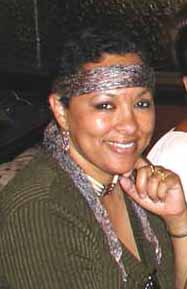 The Power of Adaptability
The Power of Adaptability
Joan Marques, MBA, Doctoral Candidate
I found out that if you are going to win games, you had better be ready to adapt. (Scotty Bowman)
Well, isn't Bowman right! The value of adaptability as a trait becomes apparent if we consider that everything we do could be seen as a game. People who have trained themselves to be flexible usually deal with much less stress due to the fact that they are capable of releasing an impossible goal, and adjust their focus to a more realistic purpose.
If we expand our perspective on the subject somewhat and generally perceive the significance of adaptability for all living species, we can easily conclude that the types of animals and plants that have managed to survive through centuries are the ones that adapted to changed conditions. It is therefore definitely not exaggerated when we state that adaptability is the mental key to survival.
Professionally perceived, adaptability can be the determining factor in keeping food on the table, be it that some times the sandwiches may be thinner than other. But people who manage to pull themselves together after a job lay off will be able to find something else in a relatively short time period, because they have trained themselves to be multi applicable.
Under the conspicuous title "Making change work for you--or at least not against you," McConnell (2002) states, "We can no longer find security in constancy, maintaining loyalty to the same ideas, concepts, and institutions for life. Rather, security, if such truly exists today, is more likely found in flexibility and adaptability." (p.66-77) Interesting point of view, isn't it?
McConnell then emphasizes an important aspect of adaptability by asserting,
Adaptable people demonstrate resilience and are usually pleasant to work with. They can get used to any work situation, and blend themselves easily into any crowd. Although they may have one certain area of specialty or preference, they will start with whatever is offered to them, and inventively make their way to the place or position where they really want to be. Here's where strategy comes into play. What the adaptable individual does under such circumstances is to develop a plan through which he or she will get from the current position to the one desired. And even if it takes a few years and a number of initiatives that may be hard to understand by the rest of the world, he or she will get there. After all, an adaptable person is very often also a determined one. The first determination lies in not getting floored by any situation. The second one can be found in his or her willpower to succeed in whatever he or she starts!
In a recent article about the adaptability among Human Resource professionals, the outcomes of an annual survey from a New York consulting firm showed that "a significant number of HR professionals changing jobs were able to move into sales and marketing positions and that 11 of the 537 HR respondents reported that they had moved up to become CEO of their organization." (Bates, 2002, p. 23) Accentuating the importance of adaptability the article further states that "HR professionals are realizing that broader experience can really strengthen their career portfolio," and that "HR people are in a particularly good position to resell their competencies to different industries or different parts of an organization."
Rabkin & Bradford (2002) explain that organizations should realize that in our ever changing world there are but two choices, "Adapt or Perish" (p. 45)
Although actually projected on the insurance market, the five keys that these authors present are useful as a self-examination tool toward everyone’s capability on the way to adaptation. Here's a generalized version of the 5 keys:
These rules may be the crucial ones for all living organisms that managed to survive, whether they were aware of applying them or not. So, adapt! Be Flexible! Diverge your capacities, for "Singularity shows something wrong in the mind." (Clarissa)
References:
October, 2002
"Flexibility and adaptability also equate with a degree of security when multiple skills reside in the same individual. The person who has taken every opportunity to learn and grow, to acquire new and different knowledge and skills, to become as versatile as possible, or who has actually become competent in two or three different occupational fields, stands a better chance of remaining employed-or securing new employment than the person who has remained limited to a single, narrow skill set." (p.66-77)
1) Be aware of the environment. Register and rapidly process every new impulse.
2) Develop mechanisms for coping with discontinuous change: be quick and effective in responding to threats, regulations, expectations, or entirely different circumstances.
3) Experiment! Get acquainted with failure. And get acquainted with successful outcomes from others in the environment.
4) Innovate! Find new ways to do old things, and be prepared to do new things as well.
5) Keep yourself open for learning and - as a result to that - for reinventing yourself over and over again.
Bates, S. (2002). HR professionals' adaptability shows up in the moves they make. HRMagazine, 47(10), 23.
Bowman, S. (Unknown). TPCN - Great Quotations. 2000 Cyber Nation International, Inc. Available: http://www.cyber-nation.com/victory/quotations/subjects/quotes_adaptability.html [2002, October 26].
Clarissa. (Unknown). TPCN - Great Quotations. 2000 Cyber Nation International, Inc. Available: http://www.cyber-nation.com/victory/quotations/subjects/quotes_adaptability.html [2002, October 26].
McConnell, C. (2002). Making change work for you--or at least not against you. The Health Care Manager, 20(4), 66-77.
Rabkin, B., & Bradford, D. (2002). Evolution theory. Best's Review, 103(4), 43-45.